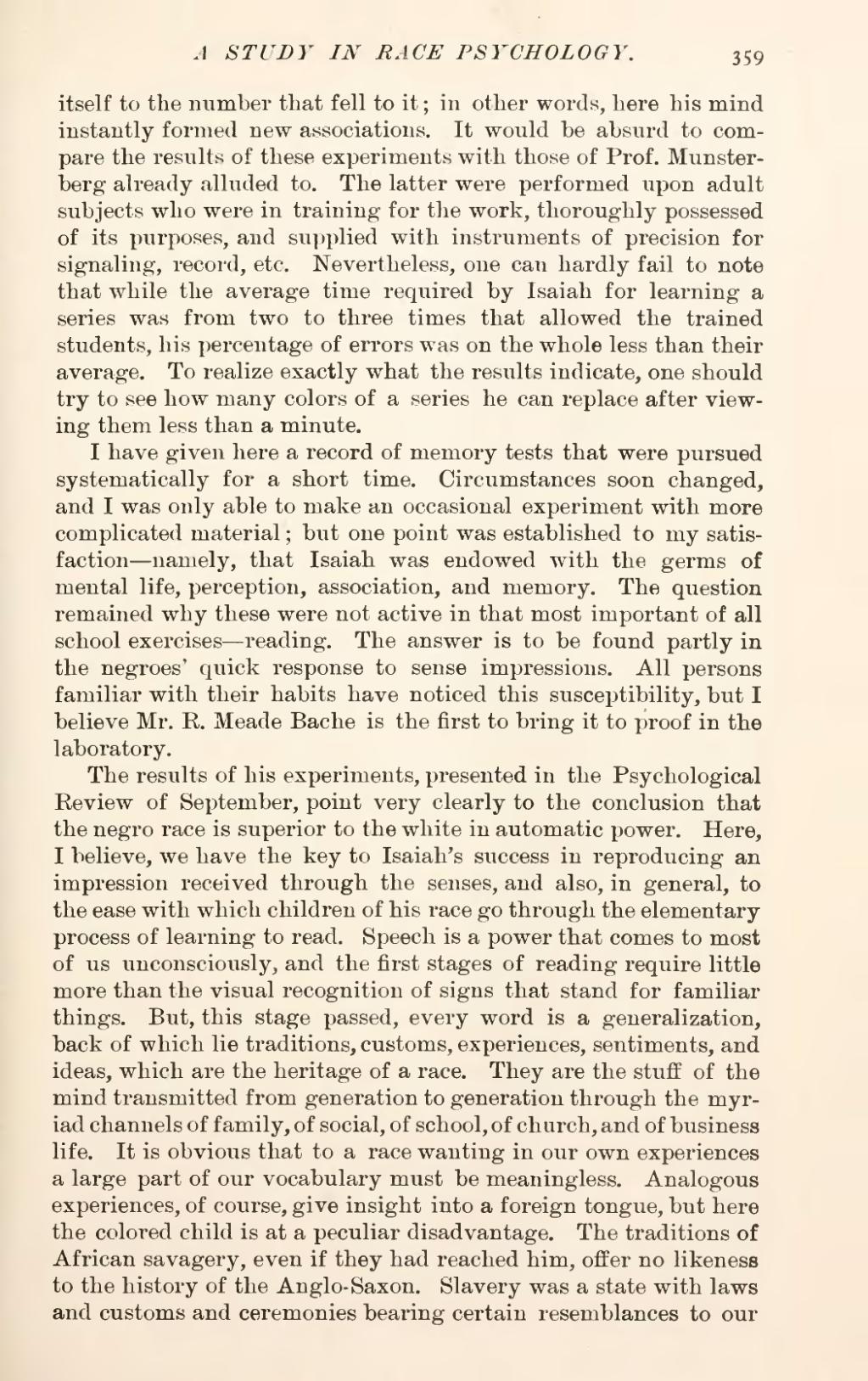itself to the number that fell to it; in other words, here his mind instantly formed new associations. It would be absurd to compare the results of these experiments with those of Prof. Munsterberg already alluded to. The latter were performed upon adult subjects who were in training for the work, thoroughly possessed of its purposes, and supplied with instruments of precision for signaling, record, etc. Nevertheless, one can hardly fail to note that while the average time required by Isaiah for learning a series was from two to three times that allowed the trained students, his percentage of errors was on the whole less than their average. To realize exactly what the results indicate, one should try to see how many colors of a series he can replace after viewing them less than a minute.
I have given here a record of memory tests that were pursued systematically for a short time. Circumstances soon changed, and I was only able to make an occasional experiment with more complicated material; but one point was established to my satisfaction—namely, that Isaiah was endowed with the germs of mental life, perception, association, and memory. The question remained why these were not active in that most important of all school exercises—reading. The answer is to be found partly in the negroes' quick response to sense impressions. All persons familiar with their habits have noticed this susceptibility, but I believe Mr. R. Meade Bache is the first to bring it to proof in the laboratory.
The results of his experiments, presented in the Psychological Review of September, point very clearly to the conclusion that the negro race is superior to the white in automatic power. Here, I believe, we have the key to Isaiah's success in reproducing an impression received through the senses, and also, in general, to the ease with which children of his race go through the elementary process of learning to read. Speech is a power that comes to most of us unconsciously, and the first stages of reading require little more than the visual recognition of signs that stand for familiar things. But, this stage passed, every word is a generalization, back of which lie traditions, customs, experiences, sentiments, and ideas, which are the heritage of a race. They are the stuff of the mind transmitted from generation to generation through the myriad channels of family, of social, of school, of church, and of business life. It is obvious that to a race wanting in our own experiences a large part of our vocabulary must be meaningless. Analogous experiences, of course, give insight into a foreign tongue, but here the colored child is at a peculiar disadvantage. The traditions of African savagery, even if they had reached him, offer no likeness to the history of the Anglo-Saxon. Slavery was a state with laws and customs and ceremonies bearing certain resemblances to our

